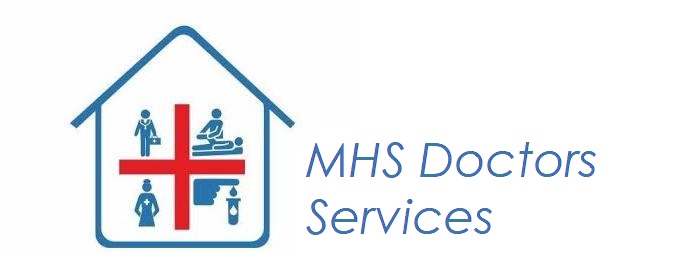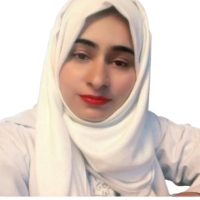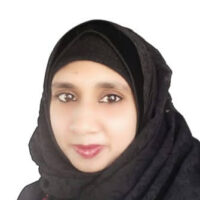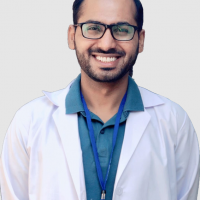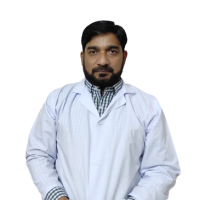MHS provides speech-language therapy, auditory processing, oral motor and myofunctional therapy
Speech Therapy
Our team
We have qualified and experienced speech pathologist for any age group!
Ms. Farheen
Mr. Muhammad Zubair Shah
Our Services
We offer speech therapy for different age groups. Find the detail below
Speech & Language Disorders in School Age Children
MHS, provides speech-language therapy, auditory processing, oral motor and myofunctional therapy for the following communication disorders in school age children:

Articulation Delays/Disorders
An Articulation Disorder involves difficulties producing sounds. Sounds may be substituted, omitted, added or deleted in an articulation disorder
Phonological Processing Disorders
Phonological Processes are patterns of sound errors which children use to simplify speech as they are learning to talk.
Apraxia of Speech/Motor Speech Disorders
Apraxia of speech is a motor-speech programming disorder resulting in difficulty executing and/or coordinating the oral- motor movement necessary to produce and combine speech sounds to form syllables, words, phrases and sentences on voluntary control.
Oral Motor Disorders
Oral-motor skills involve the movements of the lips, jaw, tongue and cheeks. These muscles are important for eating, drinking and speech.
Myofunctional Disorders
Oral Myofunctional Disorder (OMD) occurs when there is an abnormal tongue, jaw or lip position during rest, swallowing or speech.
Receptive/Expressive Language Disorders
Children with receptive or expressive language disorders have difficulty expressing themselves using speech.
Social Skills/Pragmatics
Social Pragmatic Language Disorders may also be known as semantic/pragmatic language disorder, non-verbal learning disability (NLD).
Fluency Disorders (Stuttering and Cluttering)
Stuttering is a disorder characterized by disruptions in the production of speech sounds, also called “disfluencies”. Cluttering is a communication disorder characterized by speech that is difficult for listeners to understand
Auditory Processing Disorders
Auditory processing is how your brain processes the speech sounds your ear is hearing.
Speech & Language Disorders in Adolescents
MHS, provides speech-language therapy, auditory processing, oral motor and myofunctional therapy for the following communication disorders in adolescents:

Articulation Delays/Disorders
An Articulation Disorder involves difficulties producing sounds. Sounds may be substituted, omitted, added or deleted in an articulation disorder.
Apraxia of Speech/Motor Speech Disorders
Apraxia of speech is a motor-speech programming disorder resulting in difficulty executing and/or coordinating the oral- motor movement necessary to produce and combine speech sounds to form syllables, words, phrases and sentences on voluntary control.
Oral Motor Disorders
Oral-motor skills involve the movements of the lips, jaw, tongue and cheeks. These muscles are important for eating, drinking and speech.
Myofunctional Disorders
Oral Myofunctional Disorder (OMD) occurs when there is an abnormal tongue, jaw or lip position during rest, swallowing or speech.
Receptive/Expressive Language Disorders
Adolescents with receptive or expressive language disorders have difficulty expressing themselves using speech.
Higher Level Language Disorders
Inferencing, problem solving, and figurative language.
Social Skills/Pragmatics
Social Pragmatic Language Disorders may also be known as semantic/pragmatic language disorder, non-verbal learning disability (NLD).
Fluency Disorders (Stuttering and Cluttering)
Stuttering is a disorder characterized by disruptions in the production of speech sounds, also called “disfluencies”. Cluttering is a communication disorder characterized by speech that is difficult for listeners to understand.
Auditory Processing Disorders
Auditory processing is how your brain processes the speech sounds your ear is hearing.
Speech & Language Disorders in Adults/Geriatrics/Stroke Patients
MHS provides myofunctional therapy and speech-language therapy for the following communication disorders in adults/geriatrics related to strokes, neurological diseases (Parkinson’s, MS) and brain injury:

Aphasia
Aphasia is a language disorder due to brain damage from a stroke or head injury that results in impairment in the comprehension and/or formulation of language.
Cognitive Communication Disorders
Cognitive Communication Impairment can occur as a result of right side damage to the brain.
Apraxia of Speech/Motor Speech Disorders
Apraxia of speech is a motor-speech programming disorder resulting in difficulty executing and/or coordinating the oral- motor movement necessary to produce and combine speech sounds to form syllables, words, phrases and sentences on voluntary control.
Dysarthria
Dysarthria is a group of motor disorders resulting from muscle control of the speech mechanism due to damage of the nervous system.
Myofunctional Disorders
Oral Myofunctional Disorder (OMD) occurs when there is an abnormal tongue, jaw or lip position during rest, swallowing or speech
